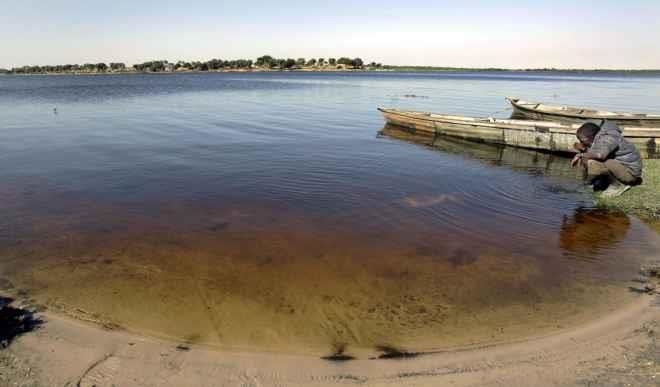Forum wants direct actions on Lake Chad shrinking, agric budgeting
The Federal Government has been urged to increase direct actions on the shrinking Lake Chad to prevent catastrophic consequences, especially in the face of climate change and desertification in 11 frontline states in the country. An economic policy researcher at the Nigerian Institute of Social and Economic Research (NISER), Mrs. Sade Taiwo, made the call […]


The Federal Government has been urged to increase direct actions on the shrinking Lake Chad to prevent catastrophic consequences, especially in the face of climate change and desertification in 11 frontline states in the country.
An economic policy researcher at the Nigerian Institute of Social and Economic Research (NISER), Mrs. Sade Taiwo, made the call in Abuja on Wednesday at a one-day Policy Dialogue on National Budget in Relation to Climate Change Adaptation Framework and Policies organised by the West Africa Network for Peace-building Nigeria (WANEP-Nigeria), Oxfam Nigeria and Voices for Food Security (VFS).
Mrs Taiwo while presenting a report, “Impact of Investment in Agriculture and Climate Change Adaptation on Small Scale Farmers in Nigeria”, said that Nigeria’s agriculture is mostly rain-fed and that the Lake Chad as an economic water resource for irrigation for the country, and also once Africa’s largest freshwater lake has shrunk from 25,000 sq km in 1963to 1,350 sq km in 2014.
“The lake provides for 68m people across four countries of Nigeria, Cameroon, Chad and Niger. A 30 percent decrease took place in the lake between 1966 and 1975. The lake is said to have shrunk by as much as 95 percent to date,” she said.
The report among others call for enhanced national budget allocation to agriculture complemented by the Overseas Development Assistance (ODA) and private sector investment and that the Federal Government can start this by meeting the minimum 10 percent budgetary allocation to agric as contained in the Malabo declaration.
In their separate remarks, Oxfam in Nigeria representative, Mr. Abdulaziz Musa and National Network Coordinator of WANEP-Nigeria Ms. Bridget Osakwe said the meeting was to ensure that the findings of the research is implemented for the benefits of the citizenry.
Musa said that with adequate support, small-scale farmers across the country could overturn rampant malnutrition and move the country toward food security.
Osakwe on her part, said, it is not enough for the authorities to speak of what they want to do and that this must be matched with direct and measurable actions to save the country from the impact of climate change and desertification.
